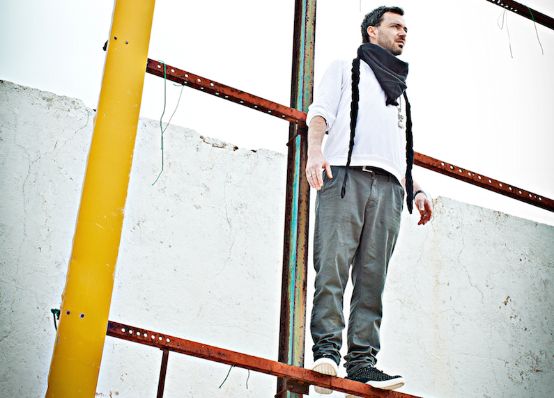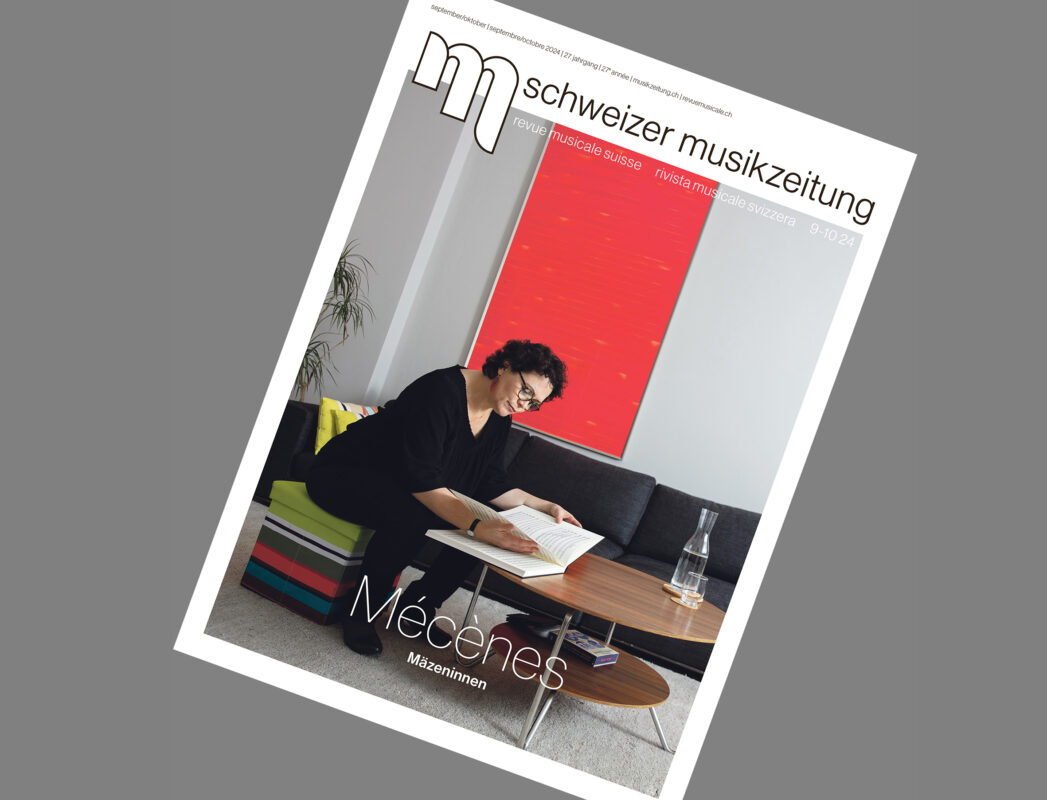When I arrived in Bern, I wanted to go back to Switzerland
Greis is a unique case in the Swiss hip-hop scene. Born in Lausanne, he lives in Bern and raps in German with Francophone culture behind him. Exchange is also important to him in other ways.


Greis is a unique case in the Swiss hip-hop scene. Born in Lausanne, he lives in Bern and raps in German with Francophone culture behind him. Exchange is also important to him in other ways.
Grégoire Vuilleumier is in kindergarten when his life changes: Professional circumstances forced the family to move from Lausanne to Bern. It was hard for the child, the culture shock was enormous: "I remember wishing I could go back to Switzerland, Bern seemed like such a different world to me." Integration is a painful time. It took him five years to learn the language. And the feeling of being "different", from outside, an outsider, settles in him.
"Today I finally feel comfortable in the role of outsider. I no longer suffer from it, on the contrary: for certain people I may come from the other side of the cultural border and they may or may not accept me, but basically I'm right at the crossroads between French and Swiss-German culture. That's a huge advantage," explains Grégoire, better known as Greis - one of the most interesting voices on the Swiss rap scene. He has 20 years of practice in this art and won the Swiss Hip Hop Music Award for Best Solo Artist four times between 2007 and 2012. In 2010, he received the MTV European Music Award for Best Swiss Artist and was nominated for the MTV EMA for Best European Act in 2016.
The audience does not double
One of his trump cards is his biculturalism, which allows him to work on both sides of the Röstigraben. However, Greis explains that this does not necessarily allow him to appeal to a wider audience and that the French-speaking audience is added to the German-speaking audience. On the contrary, the die-hard fans of one side or the other would tend to turn away, leaving only those who love this kind of transcultural approach. "What I like and what I have also used whenever possible is the exchange between cultures. Transferring something from one to the other and then understanding the strengths and weaknesses of each language and mentality from the position of an outsider and making the best of it: That was my chance. And I'm the only rapper in German-speaking Switzerland who was able to do that, because I'm the only one with a strong Francophone culture behind me."
German the French way
Greis gives us a little insight into his working method: "The reference to form and phonetics is very different in the two languages, but the way in which feelings are expressed and the humor are even more different. German and French speakers will not laugh in the same places in the same story. From a linguistic point of view, German is easier to "knead"; it's very percussive, so it's ideal for my work, but it also demands absolute formal perfection in terms of rhythms. In French, on the other hand, the expression of feelings and emotions is easier; they sound good and right in this language. In cultural terms, German is more sarcastic, more cynical, but you can't express everything on an emotional level. In French, on the other hand, the art of telling a story and using emotions has a long tradition. Just think of Brassens, Brel, Gainsbourg or Renaud ... There's nothing like that in German. So if you tell a story in the French way - as I do - but in German, then it becomes interesting. On the album I'm currently working on (Noti Wümié: Nouvelle hairstyle), I use, for example Les uns contre les autres from Starmania in German again. It's a very beautiful text, with an exuberance that you wouldn't dare to use with a German cultural background. It comes into its own wonderfully in this language and becomes very strong."
Richness of regional characteristics
Greis' work is thus characterized by a common thread of fusion, experimentation and the convergence of cultures. Experiments such as The power of musica piece for choir, orchestra, soloists and rappers, which resulted from a collaboration with Stephan Hodel and the Händel Choir Lucerne, an attempt to interpret the baroque recitative in a modern way. He has also worked with contemporary composers, Bernese and African groups and singers from French-speaking Switzerland such as Aliose and Sim's. "The latter was very enriching because, paradoxically, the cultural difference is enormous. I feel almost closer to certain African rap groups that I regularly play with than I do to my French-speaking colleagues," explains Greis. "That's the great richness of this country, that we have such distinct regional characteristics, more so than anywhere else. There are abysmal differences between cantons and cities that are right next to each other. A concrete example just on Lake Geneva: Lausanne and Geneva are two different worlds, but if you look even closer, the rappers of Nyon and those of Morges have completely different horizons."








